The name Bible comes from a Greek word biblos. It means little books. The Bible is basically a library of little books. If you look at your Bible you will see that there are 66 books, unless you read the Catholic Bible which has additional books the Catholic church felt should have been included when the Bible was canonized.
Often you will hear it referred to as the Canon. It came from the Greek word Kanon, meaning rule or rod of measurement. The books in the Bible are ones that we measure ourselves against.
There are five questions asked by the church in accepting and rejecting books as canonical.
- Was it written by a prophet of God? Deuteronomy 18:18 tells us that only a prophet of God will speak the Word of God.
- Was the author confirmed by an act of God? Hebrews 2:3-4 gives us the idea that some miraculous confirmation will follow – Jesus had the resurrection, the Apostles continued Jesus’ miracles, etc. all confirming God’s message.
- Does it tell the truth about God? Agreement with an earlier revelation or Scripture was required. Jesus referred to Scriptures, which was reference to the Old Testament teachings, numerous times. Many of the Scriptures were fulfilled, thus validating them as agreeing with earlier revelation.
- Does it have the power of God? The works had to exhibit a transforming power in the lives of the reader – it had to have major impact into their lives (see any of the epistles and the power in those words to guide our walk for examples).
- Was it accepted by the people of God? Many of the letters and the Gospels were highly circulated in the early churches. The Old Testament is full of Scriptures that cite one another, thus showing they had been accepted earlier. The New Testament also shows this when Peter call’s Paul’s writings Scripture (2 Peter 3:16) and Paul quotes Luke alongside a passage from the Law (1 Timothy 5:18).
The Bible Today
The Old Testament is broken up into parts: The Law, History, the Prophets (including both major and minor), and the Writings/Wisdom literature.
- The Law consists of Genesis, Exodus, Leviticus, Numbers, and Deuteronomy (often referred to as the Pentateuch).
- Historical books are ones that record the history of the Israelites. This includes books like 1 and 2 Kings where we see the various kings and their time ruling, as well as books like 1 and 2 Chronicles which include many genealogies of the Israelites.
- The Prophets fall into two subdivisions – Major Prophets and Minor. Major prophets are longer books like Isaiah. Minor prophets are shorter books like Joel, Amos, and Obadiah. Major does not mean they were more important than minor.
- The Writings consist of Psalms, Proverbs, Job, Song of Solomon, Ruth, Lamentations, Ecclesiastes, Ester, Daniel, Ezra, Nehemiah, and First and Second Chronicles.
The New Testament begins with the Gospels and the book of Acts, a history of the early church. It is then followed by twenty-one letters, or epistles. Thirteen of these are written by Paul with the remaining eight being the works of other Apostles or authors associated with the Apostles. Revelation is the last book, written by John.
Why it is important
2 Timothy 3:16-17: “All Scripture is God-breathed and is useful for teaching, rebuking, correcting, and training in righteousness, so that the servant of God may be thoroughly equipped for every good work.”
The Bible is our instruction book. It guides us in how we should live (Psalm 119:105). It is God’s Word spoken directly to us through His inspiration and His servants. He provides us with insight into His character and reveals His plan for us while offering a framework for daily living.
Some people believe that the Bible is outdated and does not apply to us today. But the truths contained within are timeless. True, we may not have the same experiences that many of the great names in the Bible experienced, but the ethical and moral principles underlying their experiences are important to our spiritual growth. We see God and His plan, His love, His touch in every story and every verse.
Through reading and studying the Bible, not only do we grow in our faith, but we find hope and encouragement. We find comfort in times of need and difficulty. It teaches us how we are to interact with the world and how we can respond to God’s calling in our lives (2 Timothy 2:15).
It is more than just a rule book that teaches us how we are to live. It is more than a manual that we are to follow. Instead, we should view the Bible as God’s love letter to us. He speaks to us through His Word and if we are not reading it and are not studying from it regularly, we are missing out on what He wants to tell us.
When we are not grounded in the Truth (reading the Bible), we don’t know what we believe. How can we know what is right if we don’t read His Word? How can we believe what other Christians say if we are not rooted in a foundation from God? If we do not read the Bible and learn from it, we won’t know when we are being led astray (Romans 10:17). Reading the Bible is a must for every Christian. Without it we will flounder and struggle.
Study Questions
- Does the Bible apply to our lives today?
- Can you trust the Bible? Why?
- Why do we need to be reading our Bible? How does it help us?
Think About It
Do you have a routine for reading your Bible? What distractions may be keeping you from spending time in the Word? What can you do to make reading your Bible a priority in your life?
Discipleship Program Index | Lesson 2 | Lesson 4


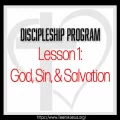
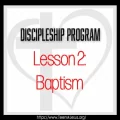
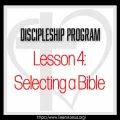

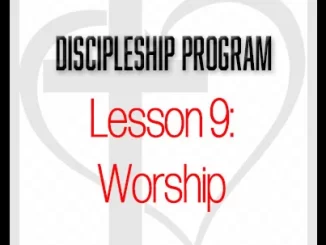
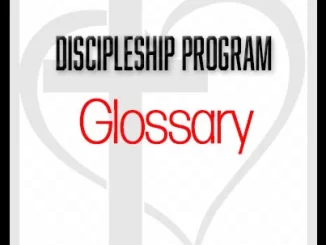
Be the first to comment